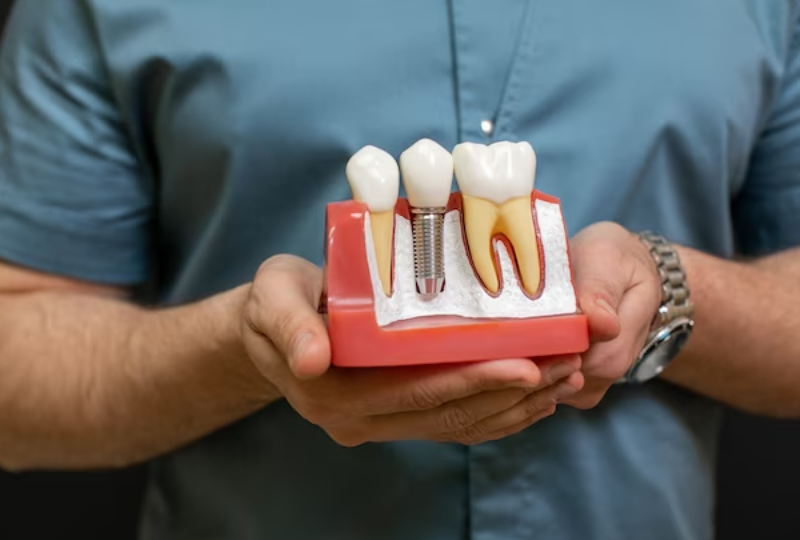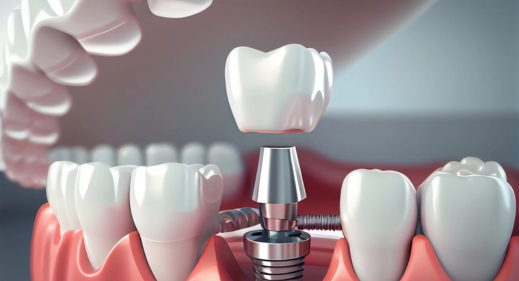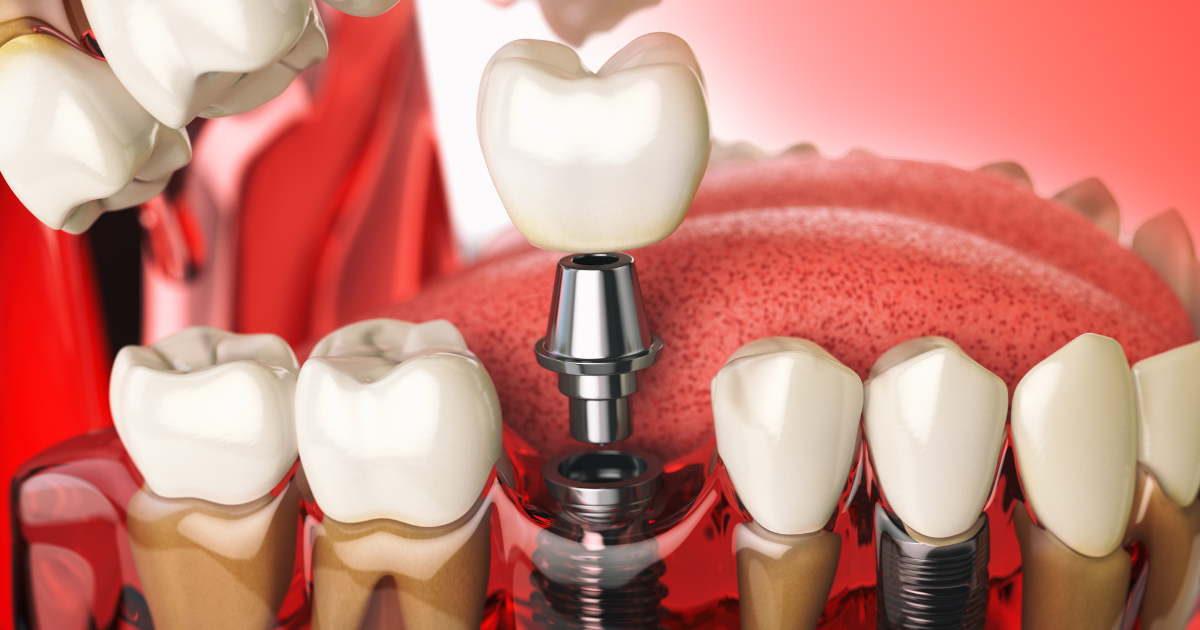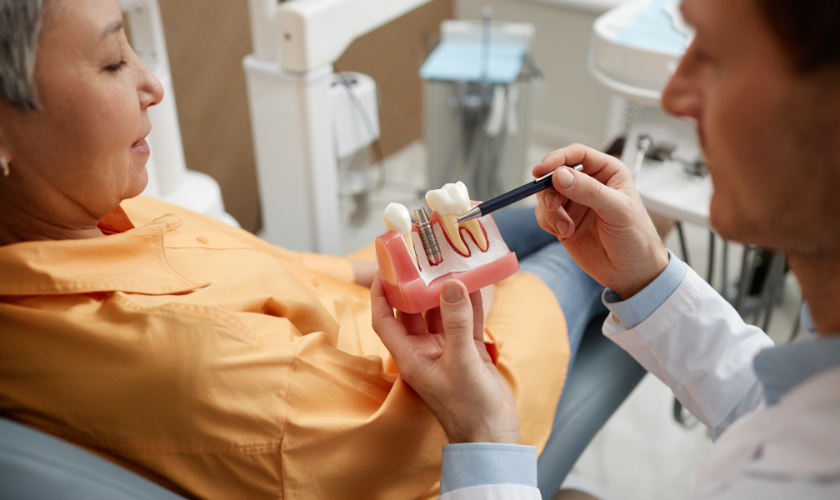943 Finchley Rd, London NW11 7PE
Common Problems After Dental Implant Surgery and How to Address Them

Dental implants have revolutionised the world of dentistry, offering a permanent and aesthetically pleasing solution for missing teeth. However, even with their high success rate, it’s natural to have concerns about potential post-surgical issues. Understanding these common problems and how to address them can significantly ease your mind and ensure a smooth recovery journey. In this informative blog, we’ll shed light on the potential issues that patients often face in the process of healing from dental implant surgery.
Common Concerns After Dental Implant Surgery
While each heals differently, some common concerns often arise after dental implant surgery. Let’s delve into the most frequently encountered ones:
Discomfort and Swelling
Mild pain and swelling are expected after the procedure and usually subside within a few days. Your dentist will prescribe medication to manage these and recommend applying cold compresses to the affected area.
Bleeding
Slight bleeding might occur, especially during the first 24 hours. Applying gentle pressure with a gauze pad to the surgical site usually suffices. However, if the bleeding persists or worsens, contact your dentist immediately.
Bruising
Similar to swelling, bruising around the implant site is common and fades within a few days. Using cold compresses can help minimize its appearance.
Difficulty Eating
Stick to soft foods initially and gradually reintroduce harder options as your mouth heals. Avoid chewing on the implant site and opt for smaller bites.
Sinus Issues
If your implants are placed in the upper jaw, temporary sinus problems like congestion or pressure are possible. Elevating your head while sleeping and using saline nasal sprays can offer relief.
Numbness
Temporary numbness around the implant site can occur due to nerve involvement during surgery. This typically resolves within a few weeks or months.
Addressing and Preventing Potential Problems
Following your dentist’s instructions is paramount for a smooth recovery and minimizing the risk of complications. However, taking an active role in your healing can further optimize the process. Here’s how:
Meticulous Oral Hygiene
Brushing Technique
Use a soft-bristled toothbrush specifically designed for dental implants. Employ a gentle, circular motion, focusing on the implant site and surrounding teeth from all angles. Tilt the brush head slightly to clean the gum line effectively, ensuring thorough cleaning without irritating the implant itself.
Flossing
Use interdental brushes or floss specifically designed for implants. These tools are gentler on the implant surface and more effective in cleaning between the implant and adjacent teeth compared to traditional floss.
Antibacterial Rinse
Consider using an antibacterial mouthwash as instructed by your dentist. This can help reduce bacterial growth and promote healing, especially in the initial stages.
Dietary Adjustments
Soft Food Options
Opt for soft, easily chewed foods like mashed potatoes, yoghurt, scrambled eggs, and well-cooked vegetables during the first few days after surgery. Gradually reintroduce harder foods like fruits and vegetables as your mouth heals, starting with softer options like cooked carrots or applesauce.
Chewing Habits
Avoid chewing directly on the implant site throughout the healing process. Distribute your chewing evenly across your mouth, utilizing your natural teeth for tougher foods.
Hydration
Maintain good hydration by drinking plenty of water throughout the day. This aids circulation, promotes healing, and helps wash away food particles that might contribute to bacterial growth.
Medication
Pain Management
Take prescribed pain medication exactly as directed by your dentist, even if you feel minimal discomfort. This helps prevent pain from escalating and allows you to focus on your recovery without discomfort hindering your routine.
Antibiotics
If your dentist prescribes antibiotics, complete the entire course of medication as directed, even if you start feeling better. This ensures thorough eradication of any potential bacterial infection.
Rest
Prioritize Sleep
Allow your body ample rest, especially during the first 48 hours after surgery. Prioritize getting a good night’s sleep and avoid strenuous activities that can impede healing.
Reduce Activity Level
Limit physically demanding activities for the first few days after surgery. As you heal, gradually increase your activity level based on your body’s tolerance and your dentist’s recommendations.
Additional Tips for a Successful Recovery
Quit Smoking: Smoking significantly hinders healing and increases the risk of implant failure. This is because of impaired blood flow and compromised immune response. Consider quitting smoking before or after surgery to optimize your chances of success.
Manage Stress: Chronic stress can negatively impact healing by weakening the immune system. Practice relaxation techniques like deep breathing, meditation, or yoga to manage stress levels during this time.
Open Communication: Don’t hesitate to reach out to your dentist if you experience any concerning symptoms like prolonged and severe pain. Early intervention is crucial for successful management and preventing potential complications.
Warm Compresses (After Initial Healing): Once the initial swelling subsides, consider applying warm compresses to the outside of your face to promote circulation and aid in the healing process.
Maintain Oral Health Habits: Continue practising good oral hygiene habits like regular brushing and flossing after the initial healing period. This remains essential for maintaining the long-term health of your implants and surrounding teeth.
Dental implants are a fantastic solution for replacing missing teeth, offering numerous benefits for your oral health and overall well-being. While some potential issues might arise after surgery, understanding these and following the recommended steps can significantly reduce their occurrence and ensure a smooth recovery journey. Remember, clear communication with your dentist and diligent aftercare are vital for achieving long-term success with your dental implants. So, embrace your new smile with confidence, and remember, knowledge is power, especially when it comes to your health!







